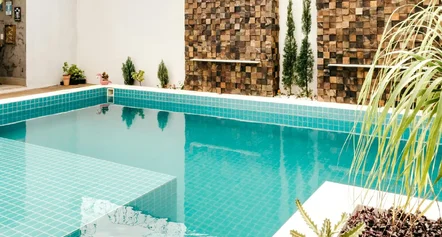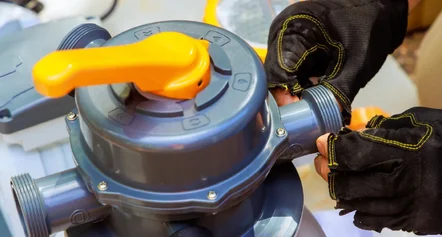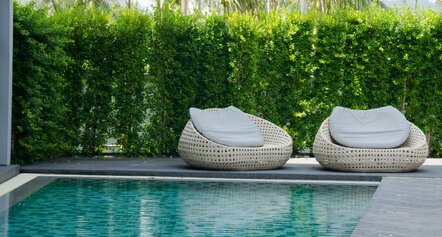Did you know a well-constructed concrete pool can last more than 50 years when maintained properly? The longevity of a concrete pool depends on various factors, including the quality of construction, climate, and ongoing care.
We will explore the average lifespan of concrete pools, highlight essential maintenance tips to help keep them in prime condition and explain what factors might affect their durability.
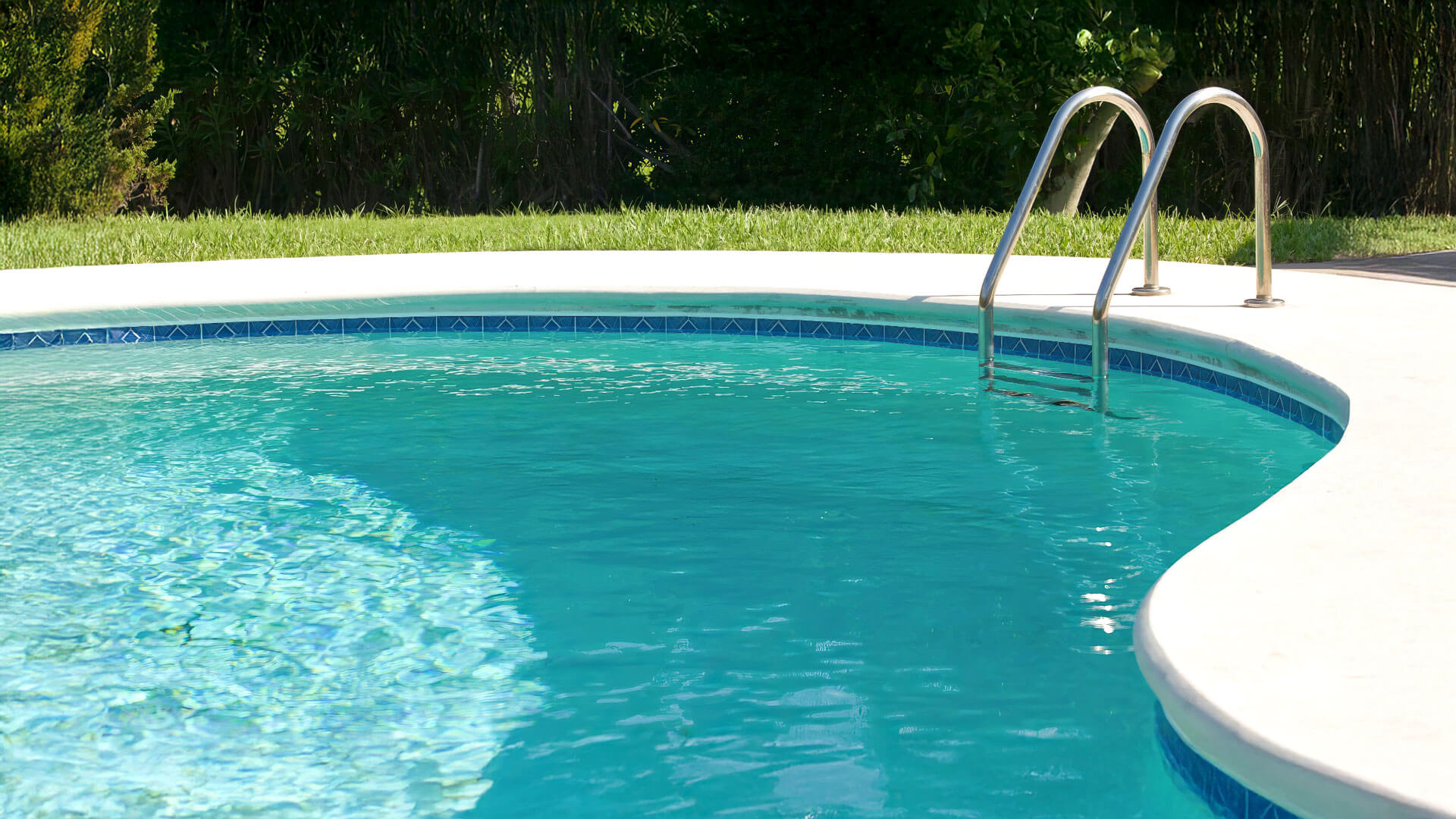
Whether you’re considering investing in a pool or already owning one, understanding the factors influencing pool longevity will help you make informed decisions and get the most out of your backyard oasis for years to come.
Factors That Affect the Lifespan of Concrete Pools
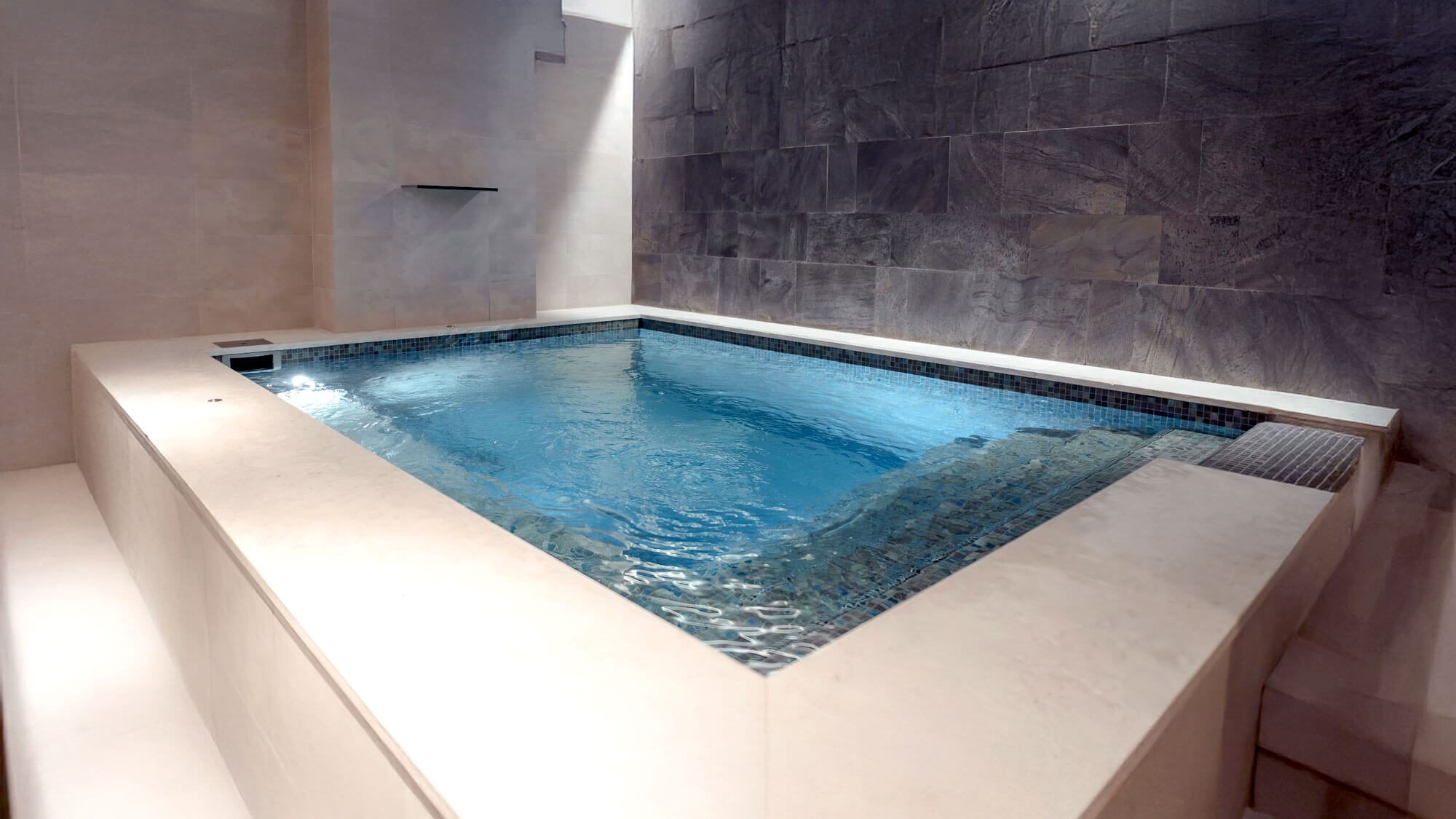
Quality of Construction
The quality of construction is one of the most crucial factors in determining how long a concrete pool will last. The skill and expertise of the builder, as well as the materials used, directly impact the pool’s durability. High-quality materials such as reinforced concrete, high-grade steel, and appropriate waterproofing systems can ensure structural integrity for many years.
A reputable and experienced builder will ensure the pool’s construction withstands environmental pressures and avoids common structural issues, such as cracking. Choosing the right builder is vital to the pool’s lifespan and performance.
Climate and Environmental Conditions
The environment in which a concrete pool is built plays a significant role in its longevity. Harsh climates, such as extreme cold or intense heat, can accelerate wear and tear. In cold regions, freeze-thaw cycles can lead to cracking if the pool isn’t adequately insulated or treated.
On the other hand, high temperatures can cause the pool surface to deteriorate faster without proper sealing. Additionally, saltwater exposure can contribute to corrosion, mainly if protective coatings are not applied. Understanding how local environmental factors affect a pool will help take preventative measures to extend its lifespan.
Maintenance Habits
Routine maintenance practices are essential to keep a concrete pool in good condition over the years. Regularly checking and balancing water chemistry, particularly pH and chlorine levels, can prevent damage to the pool’s surface and equipment. Brushing the walls and removing debris frequently to clean the pool reduces the risk of algae and staining.
Periodically reapplying waterproof sealants and addressing minor issues, such as cracks or equipment malfunctions, will prevent minor problems from becoming significant and costly. Consistent and thorough maintenance ensures the pool’s longevity and pristine condition.
Concrete Pool vs. Other Pool Types: Lifespan Comparison
Concrete Pools
Concrete pools can last 50 years with proper maintenance. Their durability stems from the inherent strength of reinforced concrete construction. The underlying structure remains intact, which may require resurfacing every 10-15 years. The ability to repair, refinish, and even remodel concrete pools contributes to their extended lifespan. Regular maintenance, including proper chemical balance and prompt repair of any cracks, ensures maximum longevity.
Fibreglass and Vinyl Pools
Fibreglass poolstypically last 25-30 years, while vinyl-lined pools need liner replacement every 5-9 years. Fibreglass can develop spider cracks and fade from UV exposure, though the shell remains structurally sound. Vinyl liners are susceptible to tears, punctures, and deterioration from chemicals and sunlight. The vinyl pool structure may last 20-30 years, but regular liner replacement adds maintenance costs and downtime.
Why Concrete Is the Preferred Choice for Longevity
Concrete pools offer superior longevity due to their robust construction and renovation ability. Unlike other pool types, concrete pools can be wholly reimagined through remodelling, making them a lasting investment that adapts to changing preferences over decades.
Common Signs That a Concrete Pool Needs Renovation or Repairs
Regular monitoring helps identify potential issues before they become significant problems. These warning signs indicate when your concrete pool requires professional attention.
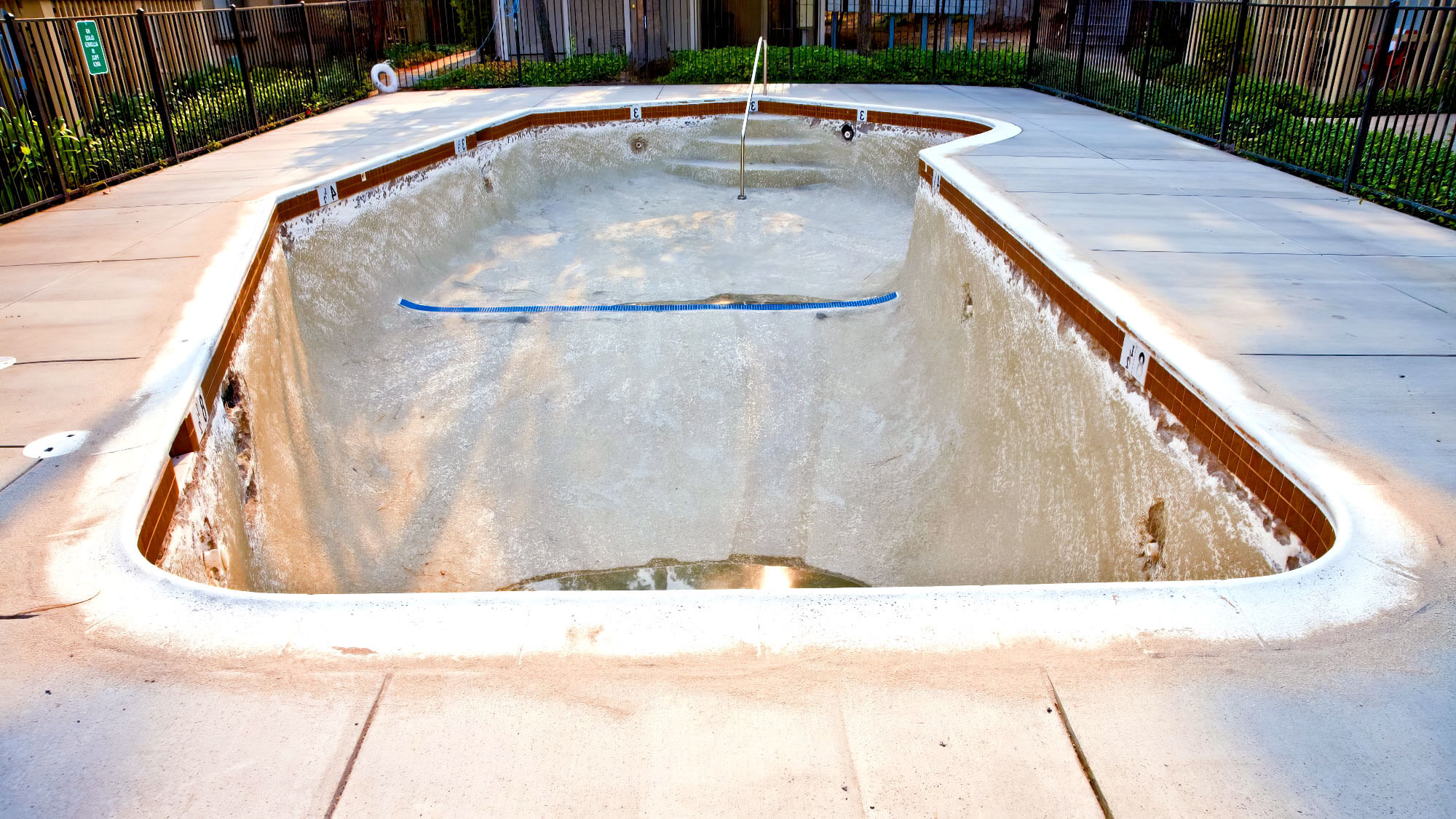
Cracks in the Pool Shell
Small hairline cracks in concrete pools often develop through ground movement or temperature changes. These fractures can expand, leading to water seepage and structural concerns. Professional assessment determines whether simple patching or extensive repairs will maintain the pool’s integrity.
Rough or Discoloured Surface
Pool surfaces become rough due to chemical erosion and weathering. Stains and discolouration emerge through mineral build-up, algae growth, or chemical imbalances. Resurfacing protects the concrete shell and restores the aesthetic appeal of your swimming area.
Leakage Issues
Water loss exceeding average evaporation points to possible leaks. Plumbing connections, structural cracks or equipment malfunctions create escape routes for water. Pressure testing locates the source, enabling targeted repairs to prevent further damage.
Equipment Failures
Pool systems show decline through unusual noises, reduced water flow or inconsistent performance. Aging pumps struggle to maintain circulation, while failing filters allow debris accumulation. Modern replacement parts improve efficiency and extend the pool’s serviceable life.
Maintenance Practices to Extend the Life of Your Concrete Pool
Proper maintenance routines protect your investment and ensure decades of enjoyment. These essential practices will preserve your pool’s condition.
Water Chemistry Balance
The pH level should remain between 7.2 and 7.6 to prevent concrete erosion. Chlorine maintains sanitisation while protecting against algae growth. Calcium hardness impacts surface durability, requiring levels between 200 and 400 ppm. Testing water chemistry twice weekly ensures optimal balance. Immediate adjustments prevent damage to the pool shell, plaster finish, and equipment—a professional chemical assessment safeguards against potential issues.
Routine Surface Cleaning
Weekly brushing removes debris and prevents algae formation on walls and floors. Manual vacuuming captures settled particles before they stain the surface. Skimming leaves and floating matter daily reduces chemical demands and filter strain. Automated cleaners supplement manual efforts, reaching difficult areas. Professional cleaning services quarterly ensure thorough removal of stubborn deposits and scale build-up.
Pool Equipment Maintenance
Regular backwashing keeps filters operating efficiently. Inspecting seals, gauges, and connections prevents equipment failure. Scheduling professional servicing annually ensures optimal system performance and extends component life.
Address Repairs Promptly
Quick responses to surface chips, equipment issues or plumbing concerns prevent escalation. The professional assessment identifies underlying causes. Swift repairs maintain structural integrity and prevent costly complications.
Resurfacing and Renovations
Strategic renovations and timely resurfacing significantly extend your pool’s lifespan. Understanding when and how to undertake these projects ensures optimal results.
Signs You Need Resurfacing
Rough patches on pool surfaces indicate material breakdown from chemical exposure. Visible aggregate or pebbles suggest significant surface wear.
Dark stains or etching marks point to chemical imbalances affecting the finish, and peeling, flaking, or delamination signals urgent resurfacing needs. The typical concrete pool requires resurfacing every 10-15 years, depending on usage and maintenance patterns. Water absorption through damaged areas accelerates deterioration.
Renovation Options to Enhance Longevity
Modern surface materials offer improved durability against chemical and UV exposure. Quartz-based finishes provide superior resistance to etching and staining. Pebble surfaces withstand harsh conditions while maintaining aesthetic appeal.
Updated waterline tiles prevent water penetration behind renders. Enhanced drainage systems protect pool structures from ground pressure. Automated chemical controllers maintain consistent water balance.
The Role of Professionals in Pool Renovation
Licensed contractors ensure proper surface preparation and application techniques. The expert assessment identifies underlying structural issues requiring attention. Professional renovations include warranties protecting your investment. Quality workmanship prevents premature deterioration.
Cost vs. Longevity: Is a Concrete Pool Worth It?
Understanding the financial implications helps make an informed decision about investing in a concrete pool. Here’s a detailed cost-benefit analysis.
Upfront Costs and Expected Lifespan
Concrete pools cost $65,000 to $100,000 to construct in Australia, compared to $45,000 for fibreglass or $35,000 for vinyl options. Their 50-year lifespan offsets this higher upfront investment.
Custom designs, varying sizes, and site-specific requirements influence costs. Premium materials and proper installation ensure maximum durability, and the concrete structure maintains its integrity through decades of use.
Maintenance Costs
Annual maintenance, including chemicals, equipment upkeep, and energy costs, averages $2,500. Resurfacing every 10-15 years requires $10,000 to $15,000. Professional servicing quarterly prevents expensive repairs. Regular chemical balancing protects the pool’s surface from deterioration.
Long-Term Value
Concrete pools increase property value through their permanence and adaptability. Renovations allow updates to match current trends without complete replacement. Unlike temporary alternatives, the structure appreciates proper maintenance. Real estate markets value concrete pools higher than other types.
How to Make Your Concrete Pool Last a Lifetime
Industry professionals share key strategies to maximise the lifespan of your concrete pool investment.
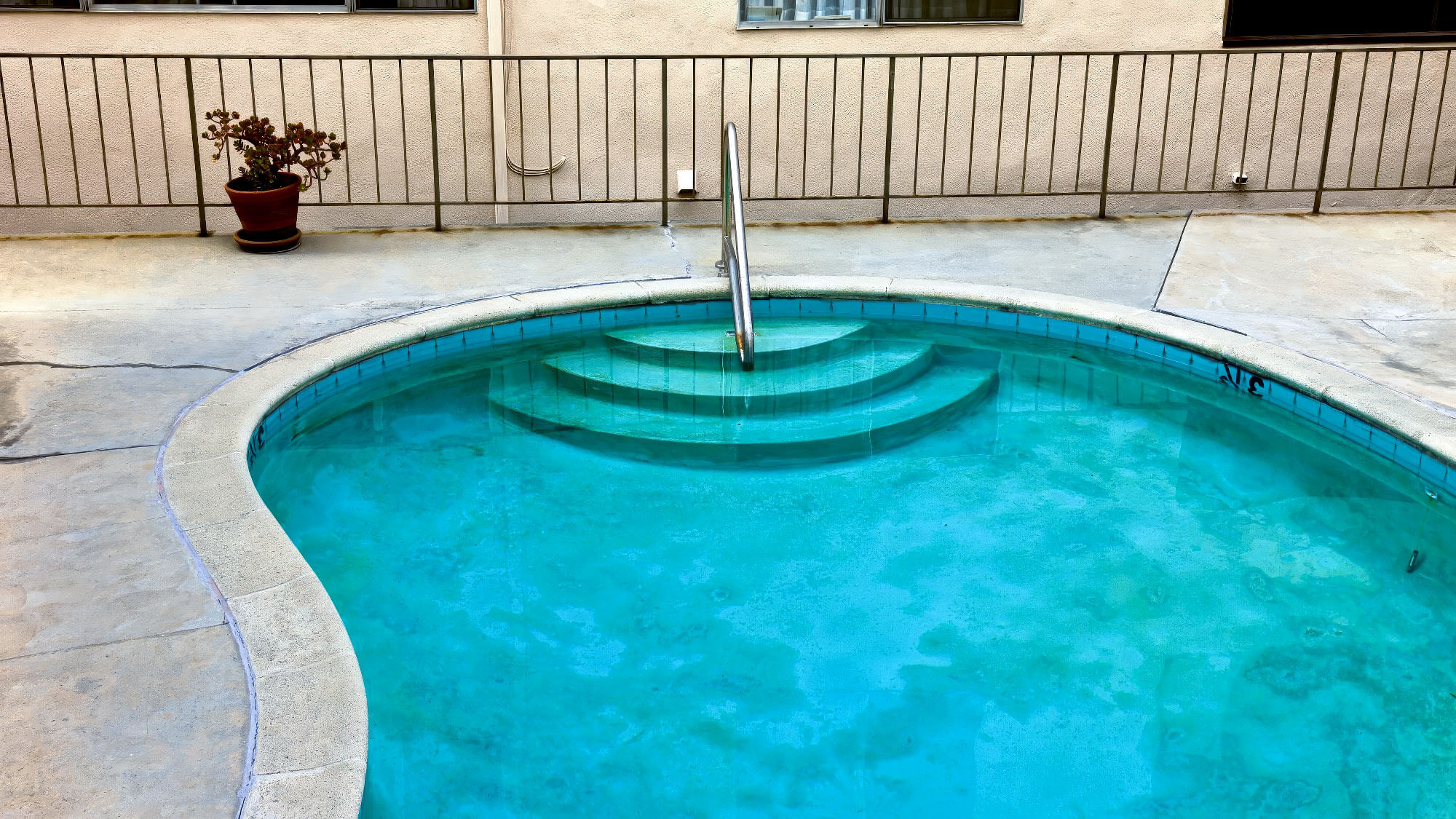
Importance of Routine Inspections
Professional pool inspections every six months reveal hidden structural concerns. Visual checks of equipment, plumbing, and surfaces identify potential issues early. Documentation of inspection findings helps track changes over time. Thermal imaging detects unseen water leaks beneath surfaces.
Using Quality Materials and Products
Premium chemicals maintain proper water balance without harsh effects. Commercial-grade equipment offers superior performance and durability. High-quality surface materials resist deterioration from UV exposure. Australian-standard pool products meet strict quality requirements.
Professional Servicing Schedule
Quarterly maintenance from licensed technicians ensures optimal operation. Equipment calibration prevents system strain and inefficiencies. Expert cleaning methods protect surface finishes. Scheduled servicing extends component lifespans significantly.
Weather Protection Measures
Pool covers shield surfaces from harsh Australian sun and debris. Proper winterisation prevents freeze damage in colder regions. Storm preparation protects equipment from electrical surges. Shade structures reduce UV impact on pool surfaces.
Water Level Management
Maintaining correct water levels prevents structural stress. Automatic levelling systems provide consistent water height. Careful monitoring during heavy rain prevents overflow damage. Proper drainage systems protect pool surrounds from water damage.
Dive Into Longevity: A Lifelong Investment in Leisure
Concrete pools represent more than just a backyard addition—they create lasting family memories through generations. Quality construction sets the foundation for decades of enjoyment, and professional maintenance ensures your investment retains its value and functionality.
Modern technology and materials enhance the durability of concrete pools beyond previous standards. Concrete construction’s adaptability allows updates as family needs change. Regular care transforms this significant investment into a permanent lifestyle enhancement.
Flamingo brings 30 years of concrete pool expertise to every project. Our qualified builders deliver superior construction standards and comprehensive maintenance programs. Contact our team to explore how we can create your lasting backyard paradise. Visit flamingopools.com.au or call 1300 616 179 today.


